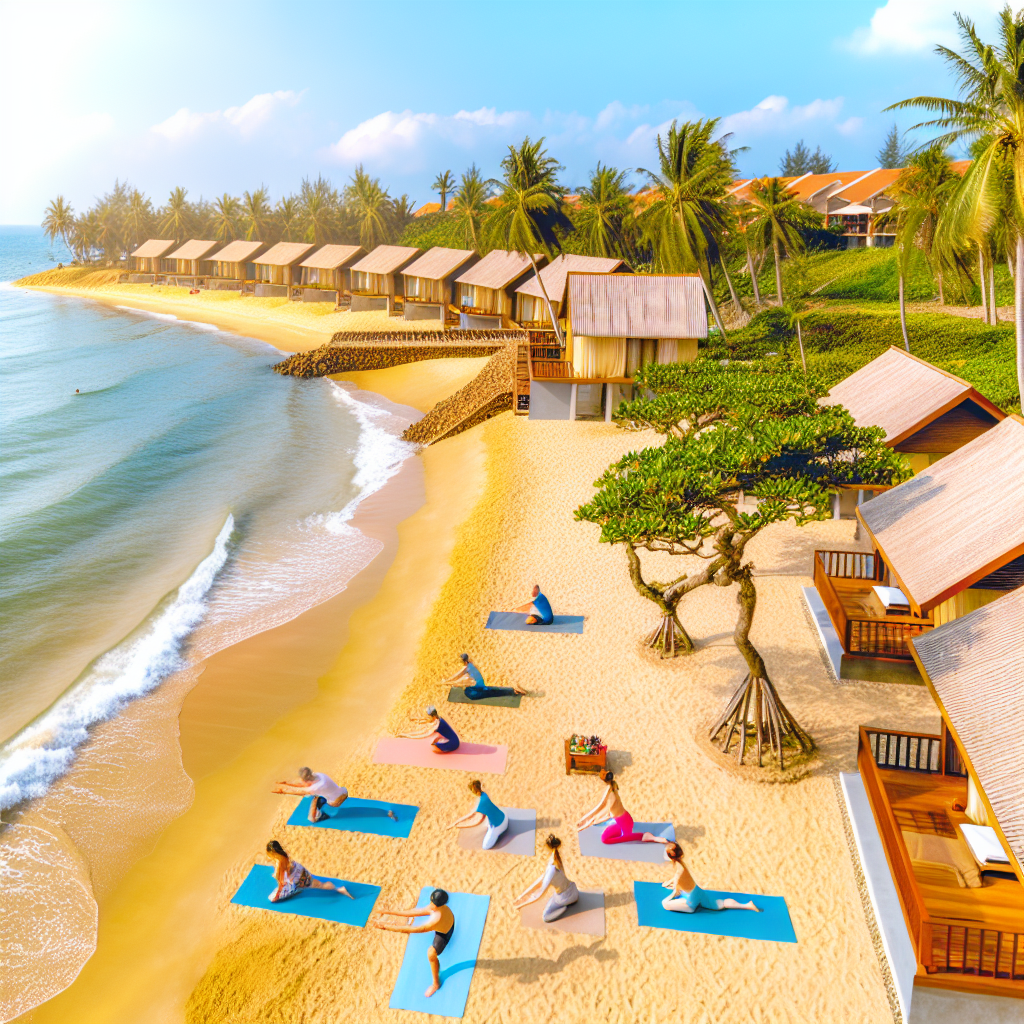Vietnam’s Coastal Resorts Embrace Wellness Tourism Boom
In recent years, Vietnam has emerged as a prominent destination for wellness tourism, particularly along its picturesque coastline. With its stunning beaches, rich cultural heritage, and growing infrastructure, Vietnam’s coastal resorts are capitalizing on the global wellness trend by offering holistic experiences that combine relaxation, health, and cultural immersion. This article explores how Vietnam’s coastal resorts are embracing the wellness tourism boom, highlighting key developments, popular destinations, and the factors driving this growth.
The Rise of Wellness Tourism in Vietnam
Wellness tourism, defined as travel aimed at promoting health and well-being through physical, psychological, or spiritual activities, has seen exponential growth worldwide. According to the Global Wellness Institute, the wellness tourism market was valued at $735 billion in 2020 and is expected to grow at a compound annual growth rate (CAGR) of 7.5% through 2025.
Vietnam, with its diverse landscapes and cultural richness, is uniquely positioned to benefit from this trend. The country’s coastal resorts, in particular, have begun to shift their focus from traditional leisure tourism to wellness-oriented offerings, attracting both domestic and international travelers seeking rejuvenation and holistic health experiences.
Key Coastal Destinations Leading the Wellness Movement
Several coastal areas in Vietnam have become hotspots for wellness tourism, each offering unique experiences that blend natural beauty with health-focused amenities.
- Nha Trang: Known for its long sandy beaches and mineral-rich mud baths, Nha Trang has developed a reputation as a wellness hub. Resorts like the Amiana Resort offer spa treatments, yoga sessions, and detox programs that leverage the region’s natural resources.
- Phu Quoc Island: This island paradise is rapidly gaining attention for its tranquil environment and luxury wellness resorts such as Fusion Resort Phu Quoc, which integrates spa therapies with mindfulness and fitness activities.
- Da Nang and Hoi An: These neighboring cities combine cultural heritage with wellness offerings. Resorts here provide traditional Vietnamese healing practices, including herbal baths and acupuncture, alongside modern spa facilities.
Innovative Wellness Offerings and Experiences
Vietnam’s coastal resorts are innovating to meet the diverse needs of wellness travelers. Some of the standout offerings include:
- Traditional Vietnamese Medicine: Many resorts incorporate traditional medicine techniques such as herbal steam baths, cupping therapy, and acupuncture, providing authentic healing experiences.
- Mindfulness and Yoga Retreats: With the global rise in mindfulness practices, resorts are hosting yoga retreats, meditation workshops, and wellness coaching to promote mental well-being.
- Detox and Nutrition Programs: Customized detox plans, organic cuisine, and nutrition counseling are becoming standard features, helping guests reset their health in a holistic manner.
- Marine-Based Therapies: Leveraging the coastal environment, some resorts offer thalassotherapy—therapeutic use of seawater and marine products—to enhance skin health and circulation.
Economic and Social Impact
The wellness tourism boom is not only transforming Vietnam’s hospitality sector but also contributing to local economies and communities. According to Vietnam’s Ministry of Culture, Sports and Tourism, wellness tourism has helped increase average tourist spending by up to 30% compared to traditional leisure tourists.
Moreover, wellness resorts often source ingredients and services locally, supporting small businesses and preserving traditional crafts and healing knowledge. This sustainable approach aligns with global trends favoring responsible tourism.
Challenges and Future Outlook
Despite the promising growth, Vietnam’s wellness tourism sector faces challenges such as the need for skilled professionals, standardization of wellness services, and infrastructure development in less accessible coastal areas. However, government initiatives and private sector investments are actively addressing these issues.
Looking ahead, experts predict that Vietnam’s coastal wellness resorts will continue to expand their offerings, integrating technology such as wellness apps and virtual consultations, while maintaining a strong emphasis on cultural authenticity and natural healing.
Conclusion
Vietnam’s coastal resorts are successfully riding the wave of the global wellness tourism boom by offering diverse, authentic, and innovative health and wellness experiences. From the mineral-rich mud baths of Nha Trang to the serene yoga retreats of Phu Quoc, these destinations are redefining luxury travel with a focus on holistic well-being. As the sector grows, it promises not only economic benefits but also the preservation of Vietnam’s rich cultural heritage and natural environment, making it a compelling choice for wellness travelers worldwide.





